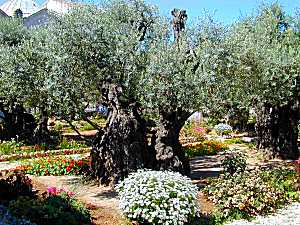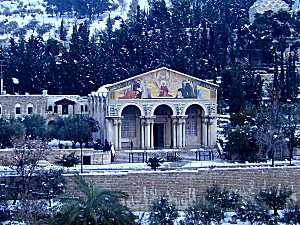Day 14
The Decapolis
They went across the lake to the region of the Gerasenes. When Jesus got out of the boat, a man with an evil spirit came from the tombs to meet him. This man lived in the tombs, and no one could bind him any more, not even with a chain. For he had often been chained hand and foot, but he tore the chains apart and broke the irons on his feet. No one was strong enough to subdue him. Mark 5:1-3
The area east of Galilee was known as the Decapolis during Jesus’ time. This region was once home to Israel’s half tribe of Manasseh but eventually came under the influence of pagan groups.
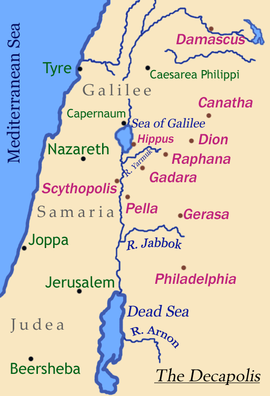
In Jewish tradition, the Decapolis was known as “the land of the seven,” representing the seven pagan nations driven from Israel in Joshua’s day. Jews believed the area was dominated by the devil. The pagans were known for worship of fertility gods, and many of their practices were detestable to God’s people.
But the Decapolis also boasted a sophisticated culture. Its cities had many attractions, including gymnasiums, baths, and theaters. Not wanting to be tempted by pagan culture, Jews rarely visited the area, despite its location within view of the Jewish communities near the Sea.
Jesus challenged these norms by taking his message to the dark corners of the Decapolis. He fed a group of 4,000 there. And he likely healed a demon-possessed man in the city of Kursi, one of ten pagan cities in the Decapolis.
As Jesus taught his disciples, he often traveled among the Jewish cities of northwestern Galilee. Most of his disciples came from that area and probably thought of the Decapolis as a place to avoid—an area dominated by evil gods.
Jesus challenged his disciples’ beliefs and fears about the Decapolis. And he gave them undeniable demonstrations of his power over evil.
One of these moments came during a boat ride on the Sea of Galilee. Jesus told the disciples to head “to the other side,” an expression used to describe the Decapolis. The disciples started off, probably questioning the wisdom of traveling to pagan territory, and soon found themselves in a terrible storm.
As they struggled against the waves, the disciples were terrified. They thought of the sea as an abyss where evil spirits lived—and they were right in the middle of it, in the midst of a fierce storm.
Fearing for their lives, they woke Jesus, who had been sleeping, and asked him why he didn’t care that they might drown. Jesus challenged them, asking “Do you still have no faith?” (Mark 4:40).
Rebuking the wind and waves, Jesus calmed the storm—and showed his disciples that he had power over nature and over the supposed gods of the Abyss.
“The Other Side”
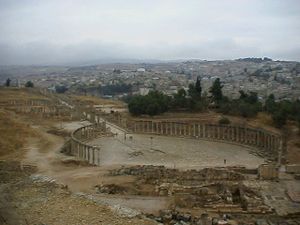
After their stormy night on the sea, Jesus and the disciples arrived in the Decapolis area, probably near the town of Kursi. The first person they encountered was a demon-possessed man, so wild that
“no one could bind him anymore” (Mark 5:3).
Though his disciples probably felt like avoiding the demon-possessed man, Jesus confronted the demons with power. He cast them out of the man and sent the demons into a herd of pigs. The pigs—sacred animals to Decapolis pagans—plunged into the sea from a steep cliff.
Jesus’ miracle presented a clear message: He came to be the light of the world, and his light could penetrate even the darkest corners of the world.
When nearby townspeople saw the miracle, they asked Jesus to leave. No doubt they were shaken and scared to see a Jewish rabbi displaying such power over the spirits of their area. The healed man was eager to travel with the Messiah, but Jesus encouraged him to stay in the Decapolis and to share his story with others.
It is important to note that the disciples never got out of the boat in the story – this shows their deep hatred or prejudices of those in the Demopolis – something Jesus was out to change.
Later, when Jesus returned to the area, he was greeted by “great crowds” of people who wanted to learn about him. Apparently, the simple testimony of a formerly demon - possessed man had tremendously impacted his culture.
So, hundreds of years ago, a man in the Decapolis was willing to talk about his shady past—a past of craziness and demon-possession—so that people would understand what Jesus had done for him.
His simple story brought hope to one of the darkest regions of the world.
As we confront the darkness today, Christians must never forget the importance of a story. The Spirit can use our testimonies to impact the hardest of hearts.
And that’s exactly why the devil works so hard to keep Christians quiet. He tempts us to care about our own reputations more than the souls of those around us. He wants us to build walls around our personal lives, to avoid exposing our weaknesses.
But how will our non-Christian friends and neighbors find true hope if we refuse to share our stories with them? How will they understand God’s grace if we pretend that we do everything in our own strength?
Some will listen to our stories and criticize us. Some may call us liars and accuse us of ulterior motives. But others will be transformed. Just like the man in the Decapolis, we each have a story that can shine into the most impossible darkness.
What’s your story? Do you believe that it could transform the world?
Prayer
Lord – what “other sides” are you leading me to – what “other sides” do you want me to get out of the boat and serve? Help me to be faithful in following you. Amen
Did someone send you this Devotion? Would you like to receive future ones directly?
Click here to subscribe. While in the Middle East for a Biblical Study Journey with fellow Word Among Us Students, a 5-person crew is filming and taking pictures of the various sites. This vibrant photographic material will be incorporated into next year's Word Among Us classes.
Want to learn more about the Bible Jesus used – The Old Testament – and the Bible Jesus taught? Enroll today in Word Among Us – Cover to Cover study of the Bible starting in Genesis and going through Revelation including the inter - testamental period, using history and archeology and Biblical culture to make the text alive - taught by Tim Hetzner.
Class sites are across the USA. Click here for more information.

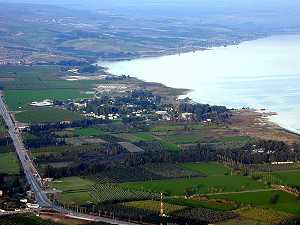
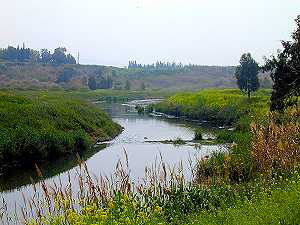
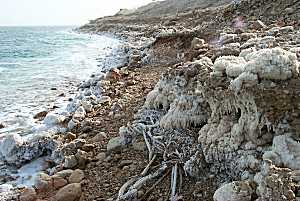

 Judaism seems to be very much a “man’s religion” with fathers deeply involved in the religious education of sons. But it also depends on the customs and atmosphere of orthodox practice and piety maintained by the mother in the home!
Judaism seems to be very much a “man’s religion” with fathers deeply involved in the religious education of sons. But it also depends on the customs and atmosphere of orthodox practice and piety maintained by the mother in the home!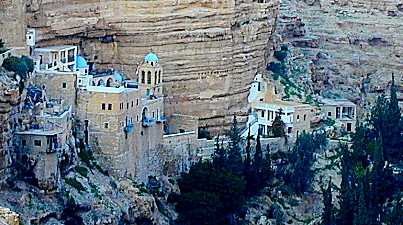
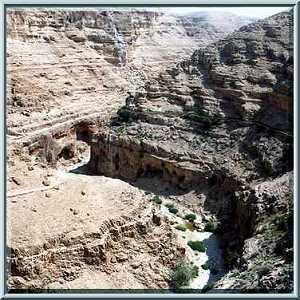 But most of all along this original road down to Jericho, one must think of the parable of the Good Samaritan. It is here in this setting we come to realize that the Good Samaritan had to cross the Wadi Qilt in order to come to where the man was lying. Not an easy task – and certainly not a safe gesture because to come to help the man meant being at the mercy of anyone else coming along the road who could throw stones at the Samaritan coming into the territory of Judah. Did Jesus have a particular inn in mind when he told this wonderful story and fixed this road as its setting? For us, an old caravansary or inn along the modern highway may suggest the necessary stage to conjure up the story even if it dates only from the Turkish period. It is easy to see how robbers could hide among these barren hills and rocks. The black tents and the goats and sheep of nomad shepherds are still found just off the highway. Only a few army posts are a contemporary intrusion.
But most of all along this original road down to Jericho, one must think of the parable of the Good Samaritan. It is here in this setting we come to realize that the Good Samaritan had to cross the Wadi Qilt in order to come to where the man was lying. Not an easy task – and certainly not a safe gesture because to come to help the man meant being at the mercy of anyone else coming along the road who could throw stones at the Samaritan coming into the territory of Judah. Did Jesus have a particular inn in mind when he told this wonderful story and fixed this road as its setting? For us, an old caravansary or inn along the modern highway may suggest the necessary stage to conjure up the story even if it dates only from the Turkish period. It is easy to see how robbers could hide among these barren hills and rocks. The black tents and the goats and sheep of nomad shepherds are still found just off the highway. Only a few army posts are a contemporary intrusion.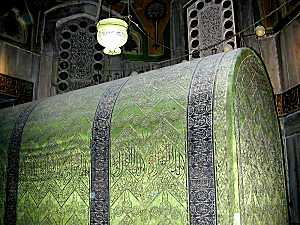
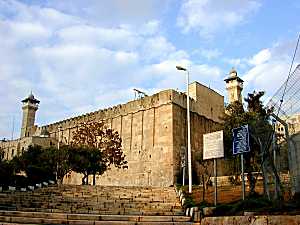
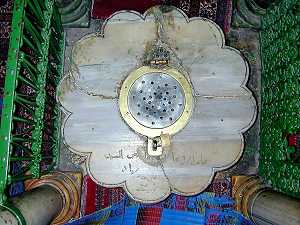
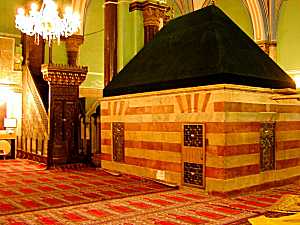
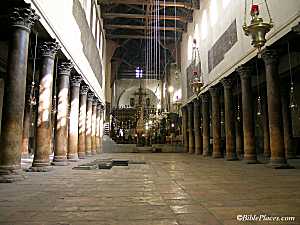
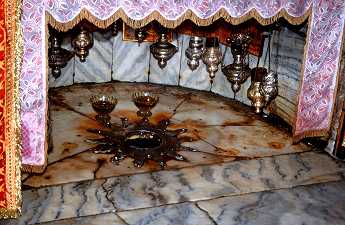
 In Jewish tradition, the Decapolis was known as “the land of the seven,” representing the seven pagan nations driven from Israel in Joshua’s day. Jews believed the area was dominated by the devil. The pagans were known for worship of fertility gods, and many of their practices were detestable to God’s people.
In Jewish tradition, the Decapolis was known as “the land of the seven,” representing the seven pagan nations driven from Israel in Joshua’s day. Jews believed the area was dominated by the devil. The pagans were known for worship of fertility gods, and many of their practices were detestable to God’s people. After their stormy night on the sea, Jesus and the disciples arrived in the Decapolis area, probably near the town of Kursi. The first person they encountered was a demon-possessed man, so wild that “no one could bind him anymore” (Mark 5:3).
After their stormy night on the sea, Jesus and the disciples arrived in the Decapolis area, probably near the town of Kursi. The first person they encountered was a demon-possessed man, so wild that “no one could bind him anymore” (Mark 5:3).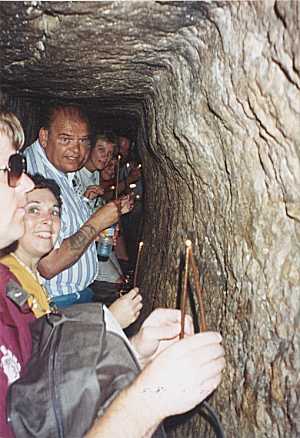
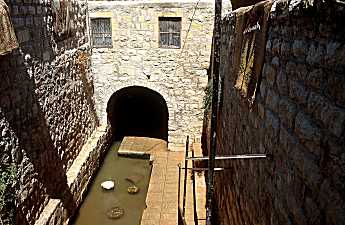
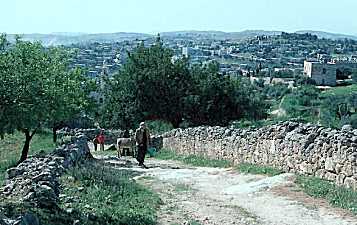
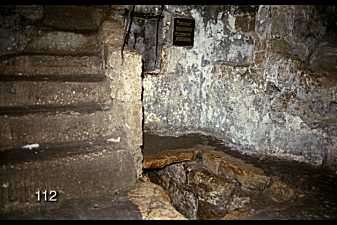
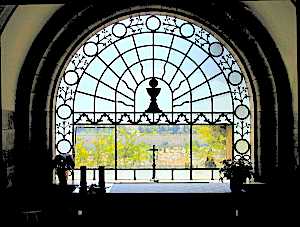
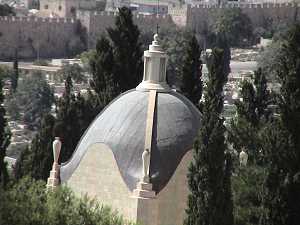
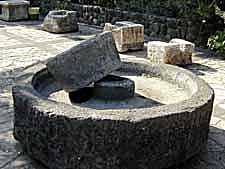 The word gethsemane is derived from two Hebrew words: gat, which means a place for pressing oil (or wine) and shemanim, which means oils.
The word gethsemane is derived from two Hebrew words: gat, which means a place for pressing oil (or wine) and shemanim, which means oils. 